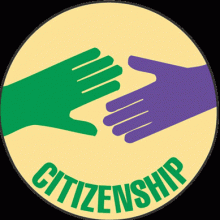
Crime Prevention through Launching of Citizenship Rights Clinics
Crime Prevention through Launching of...
According to ISNA News Agency, the Human Rights and International Affairs Deputy of the Justice Ministry, Mahmoud Abbasi said: “In previous decades the citizenship rights concept leaned towards citizen with rights, the violation of whose rights should be prevented. In the latest scientific achievements and a new view towards the subject, the citizen with rights has given his position to the accountable citizen; therefore citizenship rights is a two way movement and must be considered in the people and government in a positive way so that bigger steps can be taken towards the realisation of people’s rights.”
He continued: “the health development system is one of the basis of citizenship rights which the 11th government has prepared the basis for its realisation.”
This official pointed out other examples of citizenship rights and said: “in the past they laughed at those who put their seat belts on but today it is seen as one of citizenship rights instances in society and shows that culture building, education and promotion of citizenship rights has worked in this regard. We believe that in other social arenas too we must search and promote and institutionalise citizenship rights in the heart of society.”
He continued: “it is necessary that we have a two-sided look at social damages management and citizenship rights clinics can play a very effective role in the prevention of crime and social damages.”
Saying that to-date 8 provinces have launched citizenship rights clinics, he reassured that: “7 citizenship rights clinics have been launched in Ghazvin province, but the province needs more than 50 clinics. Ghazvin province was selected as a pilot for the citizenship rights clinics, and all officials must be coordinated and commit to go ahead with this with strength.”
Abbasi said: “citizenship rights clinics tend to the education and promotion of this rights concept, and psychological and legal services are presented to society so that the people can be more successful in the outcomes of their cases in arbitration councils and the courts. In the short space of time that we have launched these clinics we have had positive feedbacks from the people.”
 Reload
Reload



